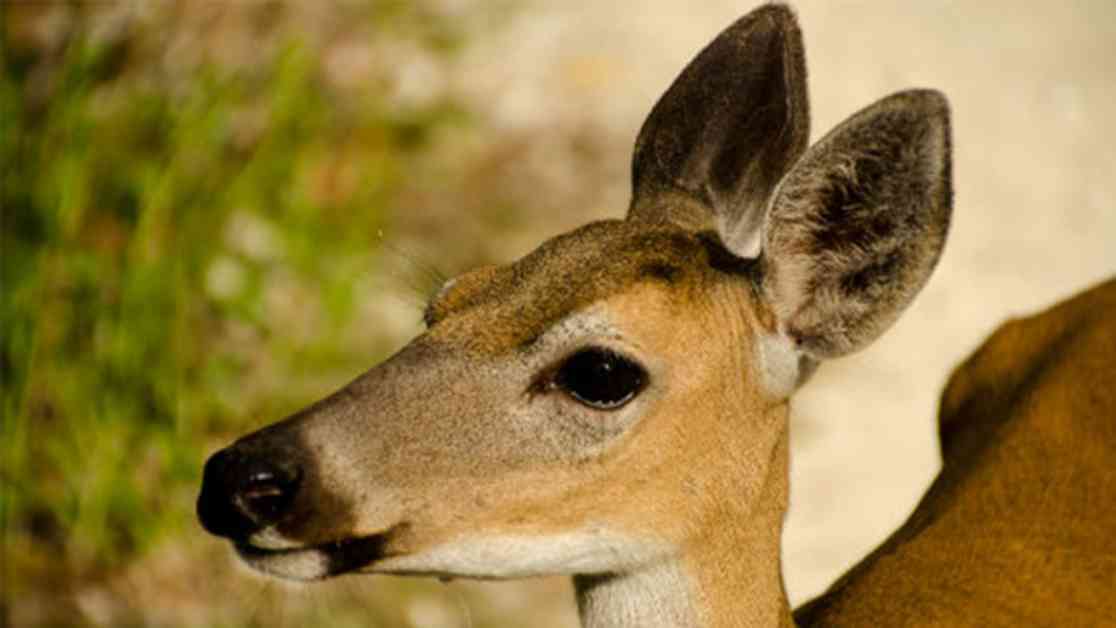Big Pine Key, Florida is home to the world’s only Key deer, the smallest subspecies of the white-tailed deer. These deer, numbering around 800, have faced various threats over the years, from hunting and poaching to vehicle collisions on the roads. However, the biggest long-term risk to the Key deer now comes from the rising seas that surround the Florida Keys.
Despite being listed as endangered for nearly six decades, the Key deer population has shown resilience and growth over the years. They faced a significant decline in numbers due to a deadly parasite and the impacts of Hurricane Irma, but managed to rebound. Unfortunately, the current challenge posed by climate change and sea level rise puts this conservation success story at risk.
The National Oceanic and Atmospheric Administration predicts a significant rise in sea levels by 2100, which could drastically impact the habitats of the Key deer. The low-lying islands like Big Pine Key, where the deer primarily reside, are particularly vulnerable to the effects of sea level rise. With freshwater sources dwindling and vegetation diminishing, the Key deer face increasing challenges in their survival.
In addition to the direct impacts of sea level rise, climate change also brings the threat of stronger hurricanes and storm surges that can further damage deer habitats. Saltwater intrusion has already led to the decline of Florida slash pines on Big Pine Key, replacing them with mangroves that choke the deer’s habitat even more.
The Key deer have adapted to living in close proximity to humans, often moving through neighborhoods and feeding on gardens. While efforts have been made to educate residents about not feeding the deer, the shrinking habitat due to development poses a significant threat to their survival. As more land is developed for housing, the deer have fewer safe spaces to roam freely.
Experts warn that the future looks bleak for the Key deer if significant action is not taken to mitigate the impacts of climate change. By 2030, just six inches of sea level rise could lead to the loss of 16% of freshwater holes on Big Pine Key. By 2050, a projected sea level rise could overtake 84% of the remaining preferred habitat for the deer, potentially leading to their extinction in the Keys.
While relocation to zoos may be considered as a last resort to save the Key deer, experts emphasize the challenges and ethical concerns associated with such a decision. Preserving their natural habitat and finding ways to coexist with human development will be crucial in ensuring the survival of this unique species in the face of climate change.


